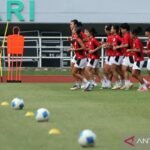Liga Profesional PSSI Tasikmalaya: A New Era for Local Football
The Liga Profesional PSSI Tasikmalaya marks a significant development in Indonesian football, showcasing the region’s dedication to enhancing the sport’s quality while fostering local talent. The establishment of this league not only elevates local competition but also represents a vital step toward increased recognition for Tasikmalaya in the national football scene.
Historical Context
Football has always been an integral part of Indonesian culture, and Tasikmalaya is no exception. For decades, the region has produced promising athletes who often found opportunities in larger clubs, yet there has been a pressing need for a structured league that can serve as a platform for local players. The creation of Liga Profesional PSSI Tasikmalaya addresses this gap, providing a more competitive environment and allowing local talents to shine.
Objectives of the League
The primary objective of Liga Profesional PSSI Tasikmalaya is to nurture and develop local football talent. By providing structured coaching, training programs, and competitive matches, the league aims to elevate the skill level of players from the region. Additionally, the league seeks to promote teamwork, sportsmanship, and community involvement, creating a holistic environment for athletes to grow.
Fostering Local Talent
One of the league’s standout features is its focus on local talent development. Coaches are primarily recruited from the local area, ensuring that they understand the cultural nuances and aspirations of local players. This approach fosters an environment where players receive tailored training that aligns with their unique strengths and challenges. The goal is to cultivate homegrown talent that can potentially transition to higher levels of competition, including regional and national leagues.
Youth Programs and Community Engagement
Liga Profesional PSSI Tasikmalaya has implemented various youth programs designed to engage young aspiring football players. These initiatives include training camps, skills workshops, and mentorship from experienced coaches. Such programs not only bolster local talent identification but also facilitate community engagement, as families can rally around the sport and support their local teams.
Structure of the League
Liga Profesional PSSI Tasikmalaya features a well-organized structure that encourages competitiveness while maintaining a fair playing field. The league comprises several divisions catering to different skill levels, ensuring balanced matchups and opportunities for promotion to higher divisions for successful teams.
Divisional Format
The league is structured into multiple divisions, with each team aiming for promotion to the next level based on their performance. This divisional format creates a clear pathway for team progression while encouraging competitive spirit among players. Additionally, teams at lower divisions benefit from exposure to better squads, thereby increasing their gameplay standards.
Collaboration with Local Authorities
The success of Liga Profesional PSSI Tasikmalaya is bolstered through strategic partnerships with local authorities and community leaders. By securing the support of municipal governments, the league is able to gain access to essential resources, including facilities, funding, and promotion. This collaboration not only elevates the league’s profile but also contributes to sustainable community development by enhancing local sports infrastructure.
Venue Development
To host matches and training, the league collaborates with the local government to improve existing facilities and develop new ones. Enhanced stadiums equipped with modern amenities create inviting atmospheres for players and fans alike, ultimately generating higher attendance and a more robust following for local football.
Promoting Inclusivity and Diversity
Liga Profesional PSSI Tasikmalaya prides itself on being inclusive and diverse. The league encourages participation from all demographics, including women and youth players, making football accessible to a broader audience. By promoting women’s teams and initiatives, the league aims to empower young girls and break traditional barriers within sports.
Community Outreach
Community outreach programs serve as a vital tool for fostering inclusivity. The league actively engages local schools and community centers, hosting events that introduce football to children of varying backgrounds. These efforts help to instill a passion for the sport while creating a sense of unity within the community.
Media and Marketing Strategy
Effective media and marketing strategies play a crucial role in the success of Liga Profesional PSSI Tasikmalaya. The league is committed to leveraging both traditional and digital platforms to enhance visibility and engage with fans.
Digital Strategy
A comprehensive digital strategy that includes a robust social media presence and a dedicated website serves to connect the league with its audience. Regular updates, highlights, player interviews, and behind-the-scenes content provide fans with insights into the league, stimulating interest and fostering loyalty.
Sponsorship and Partnerships
Strategic sponsorship and partnerships contribute significantly to the league’s financial sustainability. By collaborating with local businesses and brands, Liga Profesional PSSI Tasikmalaya aims to generate revenue that supports its operations, enhances facilities, and promotes grassroots initiatives. The visibility and support from local businesses further strengthen the community’s bond with the league.
The Future of Liga Profesional PSSI Tasikmalaya
As Liga Profesional PSSI Tasikmalaya enters this new era, its potential seems boundless. Continuing to focus on talent development, community engagement, and robust organizational structure will undoubtedly lead to growth not just for the league, but also for Tasikmalaya as a whole.
Long-Term Goals
Looking ahead, the league aspires to achieve recognition at both regional and national levels. By establishing valuable partnerships with larger football organizations, the league aims to create pathways for its most talented players to advance in their football careers. Additionally, ambition exists to integrate more technology into training and analytics, enhancing player and team performance metrics.
Expanding the League
Future expansions may include increasing the number of participating teams, introducing a women’s league, and perhaps forming a regional alliance with neighboring districts. These initiatives promise to attract even more talent and elevate the profile of Tasikmalaya within Indonesian football.
Conclusion
The advent of Liga Profesional PSSI Tasikmalaya heralds a promising future for local football, empowering communities and developing sports culture in the region. With its commitment to inclusivity, talent development, and community building, the league stands as a beacon of hope for aspiring footballers and fans, ushering in an era where Tasikmalaya takes center stage in Indonesian football.




